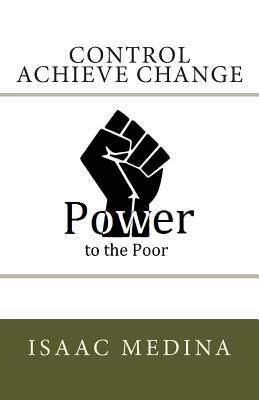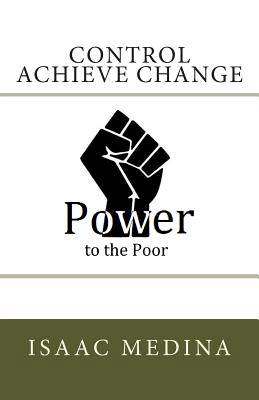
- Retrait gratuit dans votre magasin Club
- 7.000.000 titres dans notre catalogue
- Payer en toute sécurité
- Toujours un magasin près de chez vous
- Retrait gratuit dans votre magasin Club
- 7.000.0000 titres dans notre catalogue
- Payer en toute sécurité
- Toujours un magasin près de chez vous
Description
How lives can be changed.
There are 46.2 million people living in poverty. With all the assistance our government offers, food stamps, welfare, Social Security, Medicare, Medicaid, free school lunch, free education and so much more. We still have 46.2 million people living in poverty - How can we change this? Annette Ramirez works at a church-run community center in San Bernardino, Calif. Being poor is new for Annette Ramirez. "When I first walked out of that welfare office, I came out in tears," she says. The 44-year-old graphic designer from San Bernardino, Calif., used to lay out classifieds for the local paper and advertising for a beer distributor. She rented a four-bedroom house from her brother and was doing "OK." But in 2008, in the midst of the Great Recession and just as the subprime mortgage crisis was popping the housing bubble, her brother lost his home, and Ramirez lost her job. Since then, she and her 11-year-old daughter have moved in with her parents, scraping by on $490 in state welfare payments and $300 in food stamps. "I've worked so hard all these years. But now I'm right there with everybody else," Ramirez says. San Bernardino has taken its hits over the years. On historic Route 66 in Southern California, the city of 215,000 was once a bustling bedroom community -- the 1950s birthplace of McDonald's and a 1970s "All-America City." But the thousands of jobs lost after the closing of Kaiser Steel in the mid-1980s and Norton Air Force Base in 1994 (about 10,000 jobs) rippled through the area's blue-collar workforce to devastating effect. "We never recovered," says Marlene Merrill of the county's Community Action Program, which gets 20,000 calls a month from residents seeking help. The real-estate bubble in the late 1990s and early 2000s fueled a partial resurgence in construction and service jobs, but when the boom went bust, those jobs did, too. Ramirez works for her welfare check, supervising the distribution of clothes, books and toys to the poor at a church-run community center. Let me first make this one statement - "the poor do not have to be poor", the poor have the power to control, achieve and change.
There are 46.2 million people living in poverty. With all the assistance our government offers, food stamps, welfare, Social Security, Medicare, Medicaid, free school lunch, free education and so much more. We still have 46.2 million people living in poverty - How can we change this? Annette Ramirez works at a church-run community center in San Bernardino, Calif. Being poor is new for Annette Ramirez. "When I first walked out of that welfare office, I came out in tears," she says. The 44-year-old graphic designer from San Bernardino, Calif., used to lay out classifieds for the local paper and advertising for a beer distributor. She rented a four-bedroom house from her brother and was doing "OK." But in 2008, in the midst of the Great Recession and just as the subprime mortgage crisis was popping the housing bubble, her brother lost his home, and Ramirez lost her job. Since then, she and her 11-year-old daughter have moved in with her parents, scraping by on $490 in state welfare payments and $300 in food stamps. "I've worked so hard all these years. But now I'm right there with everybody else," Ramirez says. San Bernardino has taken its hits over the years. On historic Route 66 in Southern California, the city of 215,000 was once a bustling bedroom community -- the 1950s birthplace of McDonald's and a 1970s "All-America City." But the thousands of jobs lost after the closing of Kaiser Steel in the mid-1980s and Norton Air Force Base in 1994 (about 10,000 jobs) rippled through the area's blue-collar workforce to devastating effect. "We never recovered," says Marlene Merrill of the county's Community Action Program, which gets 20,000 calls a month from residents seeking help. The real-estate bubble in the late 1990s and early 2000s fueled a partial resurgence in construction and service jobs, but when the boom went bust, those jobs did, too. Ramirez works for her welfare check, supervising the distribution of clothes, books and toys to the poor at a church-run community center. Let me first make this one statement - "the poor do not have to be poor", the poor have the power to control, achieve and change.
Spécifications
Parties prenantes
- Auteur(s) :
- Editeur:
Contenu
- Nombre de pages :
- 114
- Langue:
- Anglais
Caractéristiques
- EAN:
- 9781481048026
- Date de parution :
- 20-11-12
- Format:
- Livre broché
- Format numérique:
- Trade paperback (VS)
- Dimensions :
- 140 mm x 216 mm
- Poids :
- 140 g

Les avis
Nous publions uniquement les avis qui respectent les conditions requises. Consultez nos conditions pour les avis.






